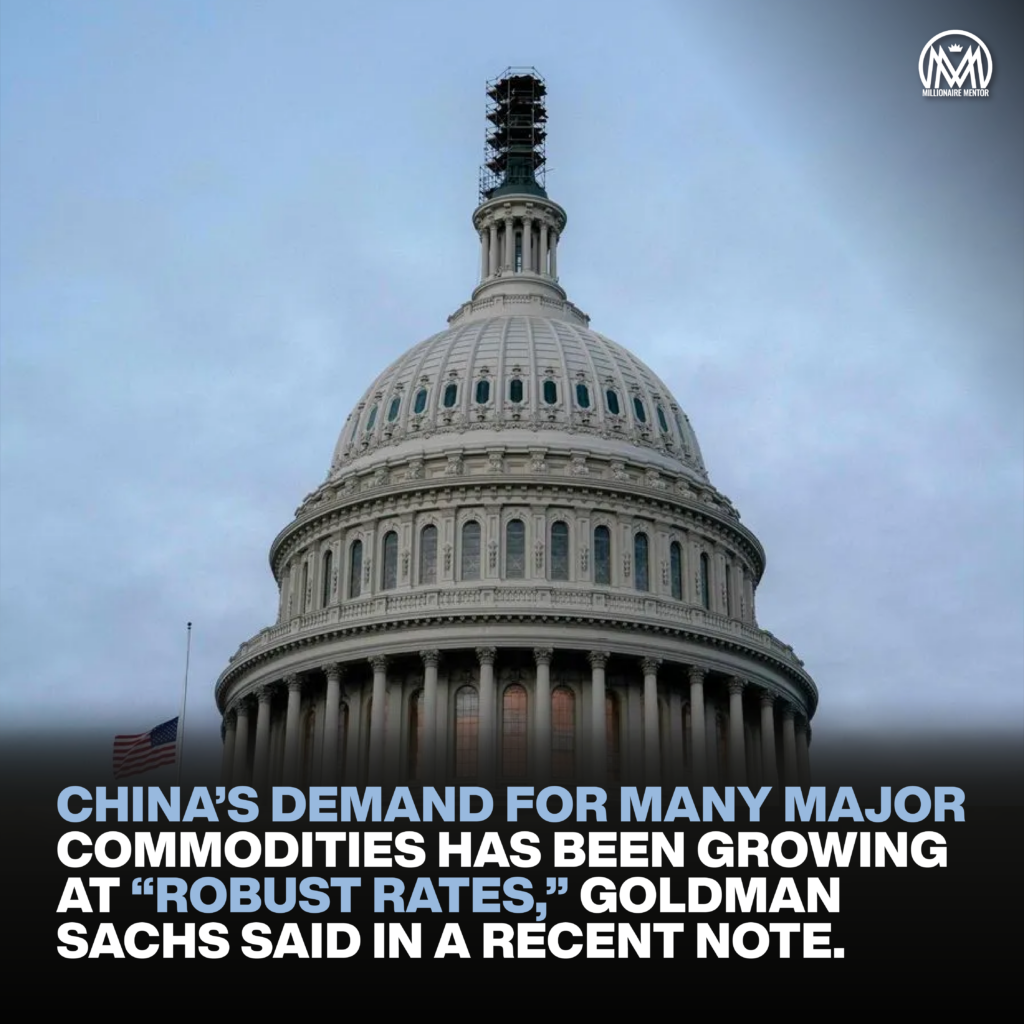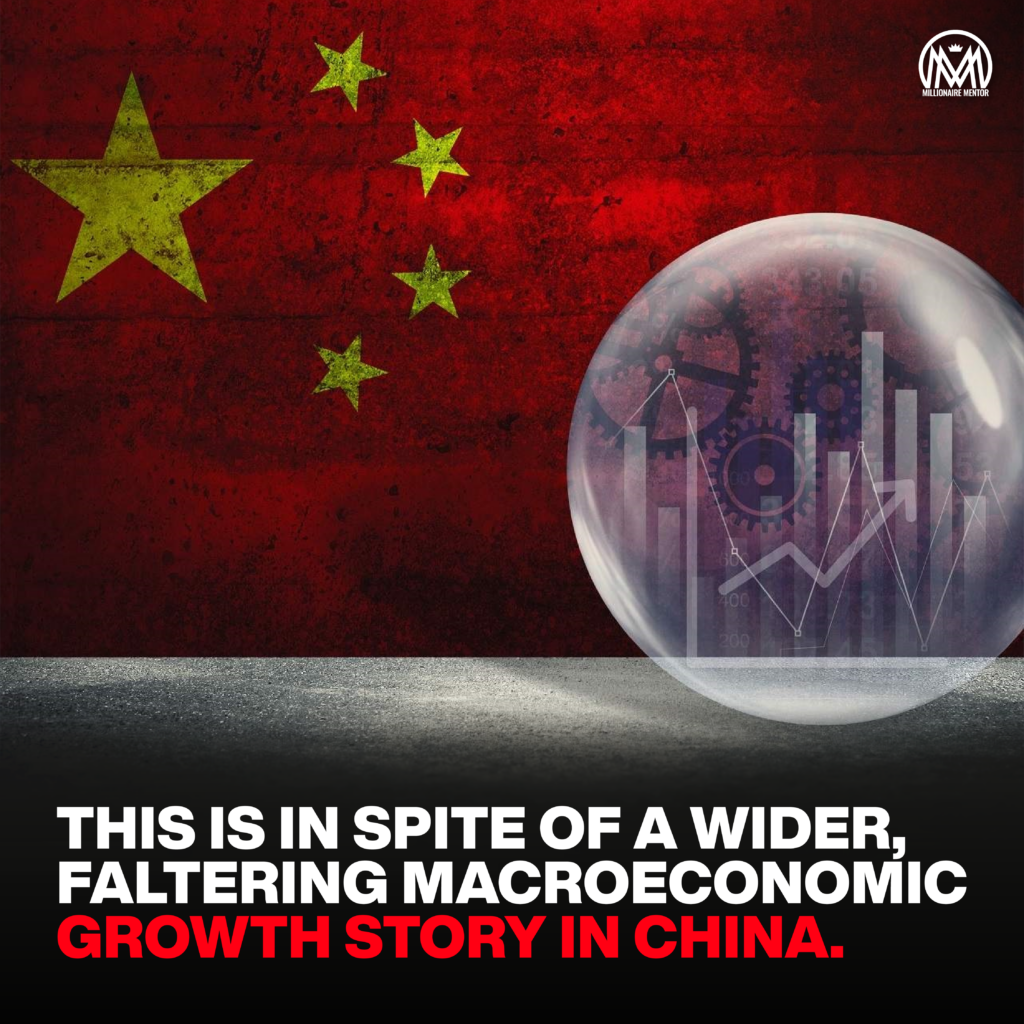In a surprising turn of events, China’s insatiable demand for commodities is breaking the mold of a slowing macroeconomic growth narrative. Recent observations by investment giant Goldman Sachs have revealed that China’s demand for commodities, particularly copper, iron ore, and oil, has surged beyond expectations.
Copper, the red metal often regarded as an economic barometer, has experienced an impressive 8% year-on-year increase in demand. This substantial uptick defies the general consensus that the global economy is grappling with headwinds and uncertainties. Furthermore, China’s appetite for iron ore and oil has shown remarkable growth rates of 7% and 6%, respectively, outstripping even Goldman Sachs’ own full-year predictions.
Goldman Sachs, renowned for its expertise in financial markets and commodities, acknowledged in a recent note that China’s demand for major commodities has been growing at “robust rates.” This divergence from a broader narrative of faltering macroeconomic growth in China raises intriguing questions about the underlying factors fueling this demand surge.
Several factors may explain China’s seemingly voracious demand for commodities:
Infrastructure Development: China has continued its ambitious infrastructure development projects, with a focus on transportation, energy, and urbanization. These projects often require substantial quantities of raw materials like copper and iron ore.
Green Initiatives: China’s commitment to renewable energy and electric vehicles has led to a substantial increase in the demand for copper. The metal is a critical component in electrical systems and is essential for transitioning to a cleaner, more sustainable energy future.
Supply Chain Resilience: The disruptions caused by the COVID-19 pandemic exposed vulnerabilities in global supply chains. In response, many countries, including China, have sought to secure strategic commodities to ensure resilience and minimize supply chain risks.
Global Economic Recovery: While the global economic recovery has been uneven, it has still fueled demand for commodities as industries restart and consumers regain confidence.
Strategic Stockpiling: To secure their commodity supplies and hedge against potential price volatility, Chinese companies and the government may be stockpiling essential materials.
Despite these positive developments, concerns linger over the broader implications of such robust demand for commodities. Chief among these is the potential for inflationary pressures and the impact on global supply chains, which have already been strained in recent years.
Moreover, the sustainability of China’s resource-intensive growth model remains a long-term concern. The nation’s pursuit of self-sufficiency in key commodities could disrupt global markets and pose challenges for other nations heavily dependent on these resources.
In conclusion, China’s unexpected surge in demand for commodities like copper, iron ore, and oil showcases its resilience and determination to drive economic growth, even in the face of broader macroeconomic challenges. As the world watches China’s resource consumption closely, it raises important questions about the country’s role in shaping the future of global commodities markets and its impact on the broader world economy.


Trending News Articles
 Walmart Buys Tiger Global’s Flipkart Stake for $1.4 Billion.by Jason Stone●July 31, 2023
Walmart Buys Tiger Global’s Flipkart Stake for $1.4 Billion.by Jason Stone●July 31, 2023 “This Is Something People Really Need To Be Alerted To” | Jordan Petersonby Jason Stone●December 19, 2022
“This Is Something People Really Need To Be Alerted To” | Jordan Petersonby Jason Stone●December 19, 2022 Roblox Game Developers Earned a Record $741 Million Last Yearby Jason Stone●February 22, 2024
Roblox Game Developers Earned a Record $741 Million Last Yearby Jason Stone●February 22, 2024 Elon Musk has declared microsoft bing’s chatgpt based AI unsafe and has called for its shutdown.by Jason Stone●February 23, 2023
Elon Musk has declared microsoft bing’s chatgpt based AI unsafe and has called for its shutdown.by Jason Stone●February 23, 2023





